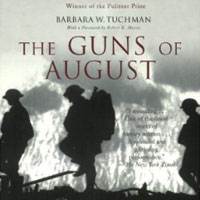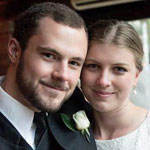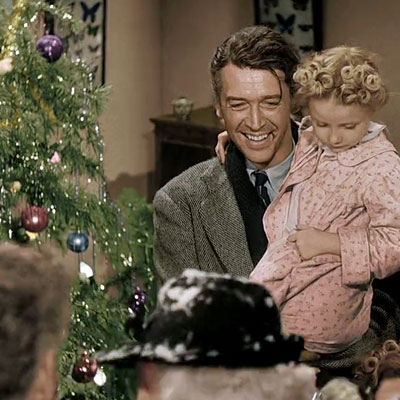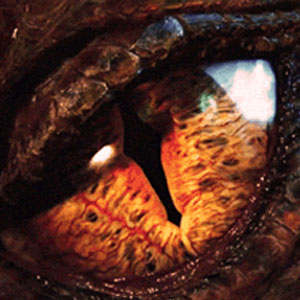Barbara Tuchman’s The Guns of August is history at its best. It is both enjoyable and enlightening; it is “history as drama,” and like good fiction abounds in wise lessons.
Tuchman frames the events leading up to the First World War within the context of the principle decision makers. As she tells it, nations and individuals are not passively swept along by forces of history; the catalysts of history are individuals, replete with their flaws and foibles. She excels at character portraits, which contextualise the attitudes and judgements of history’s protagonists.
Having said that, Tuchman makes a compelling case that the world as we know it even today — 99 years after the guns of August 1914 were fired — is fundamentally shaped by the decisions and events which unfolded in that unhappy month. We may not be enslaved by the impersonal forces of history, but we are certainly shaped by the personal decisions of our forebears.
The Guns of August so impressed President John F. Kennedy when he read it, that he bought copies for his Cabinet and military advisors, and ordered them to read it too. Kennedy’s Secretary of the Army had a copy supplied to every American military base in the world.
The book was published nine months before the Cuban Missile Crisis. Robert Kennedy — the President’s brother and then-Attorney General — suggests that in that episode, Tuchman’s history itself made history:
Barbara Tuchman’s The Guns of August had made a great impression on the President. . . He talked about the miscalculations of the Germans, the Russians, the Austrians, the French, and the British. They somehow seemed to tumble into war, he said, through stupidity, individual idiosyncrasies, misunderstandings, and personal complexes of inferiority and grandeur . . .
“I am not going to follow a course which will allow anyone to write a comparable book about this time, The Missiles of October,” he said to me that Saturday night, October 27. “If anybody is around to write after this, they’re going to understand we made every effort to find peace and every effort to give our adversary room to move. I’m not going to push the Russians an inch beyond what’s necessary.”
Just before Christmas, I picked up an app version of The Guns of August for less than $12, which enabled 19 hours of long-distance driving to fly by. If you drive long distances, I can’t recommend it highly enough.
An extract from the opening chapter is provided below. It demonstrates Tuchman’s skill at story-telling. Her account of King Edward VII’s funeral — the last gasp of La Belle Époque, the swan song of guilded aristocracy — is as famous as the book it introduces.
[podloveaudio src=”http://audiofilemagazine.podbus.com/media/clips/40354.mp3″]
CHAPTER ONE: A FUNERAL
So gorgeous was the spectacle on the May morning of 1910 when nine kings rode in the funeral of Edward VII of England that the crowd, waiting in hushed and black-clad awe, could not keep back gasps of admiration. In scarlet and blue and green and purple, three by three the sovereigns rode through the palace gates, with plumed helmets, gold braid, crimson sashes, and jeweled orders flashing in the sun. After them came five heirs apparent, forty more imperial or royal highnesses, seven queens—four dowager and three regnant—and a scattering of special ambassadors from uncrowned countries. Together they represented seventy nations in the greatest assemblage of royalty and rank ever gathered in one place and, of its kind, the last. The muffled tongue of Big Ben tolled nine by the clock as the cortege left the palace, but on history’s clock it was sunset, and the sun of the old world was setting in a dying blaze of splendor never to be seen again.
In the center of the front row rode the new king, George V, flanked on his left by the Duke of Connaught, the late king’s only surviving brother, and on his right by a personage to whom, acknowledged The Times, “belongs the first place among all the foreign mourners,” who “even when relations are most strained has never lost his popularity amongst us”—William II, the German Emperor. Mounted on a gray horse, wearing the scarlet uniform of a British Field Marshal, carrying the baton of that rank, the Kaiser had composed his features behind the famous upturned mustache in an expression “grave even to severity.” Of the several emotions churning his susceptible breast, some hints exist in his letters. “I am proud to call this place my home and to be a member of this royal family,” he wrote home after spending the night in Windsor Castle in the former apartments of his mother. Sentiment and nostalgia induced by these melancholy occasions with his English relatives jostled with pride in his supremacy among the assembled potentates and with a fierce relish in the disappearance of his uncle from the European scene. He had come to bury Edward his bane; Edward the arch plotter, as William conceived it, of Germany’s encirclement; Edward his mother’s brother whom he could neither bully nor impress, whose fat figure cast a shadow between Germany and the sun. “He is Satan. You cannot imagine what a Satan he is!”
This verdict, announced by the Kaiser before a dinner of three hundred guests in Berlin in 1907, was occasioned by one of Edward’s continental tours undertaken with clearly diabolical designs at encirclement. He had spent a provocative week in Paris, visited for no good reason the King of Spain (who had just married his niece), and finished with a visit to the King of Italy with obvious intent to seduce him from his Triple Alliance with Germany and Austria. The Kaiser, possessor of the least inhibited tongue in Europe, had worked himself into a frenzy ending in another of those comments that had periodically over the past twenty years of his reign shattered the nerves of diplomats.
Happily the Encircler was now dead and replaced by George who, the Kaiser told Theodore Roosevelt a few days before the funeral, was “a very nice boy” (of forty-five, six years younger than the Kaiser). “He is a thorough Englishman and hates all foreigners but I do not mind that as long as he does not hate Germans more than other foreigners.” Alongside George, William now rode confidently, saluting as he passed the regimental colors of the 1st Royal Dragoons of which he was honorary colonel. Once he had distributed photographs of himself wearing their uniform with the Delphic inscription written above his signature, “I bide my time.” Today his time had come; he was supreme in Europe.
Behind him rode the widowed Queen Alexandra’s two brothers, King Frederick of Denmark and King George of the Hellenes; her nephew, King Haakon of Norway; and three kings who were to lose their thrones: Alfonso of Spain, Manuel of Portugal and, wearing a silk turban, King Ferdinand of Bulgaria who annoyed his fellow sovereigns by calling himself Czar and kept in a chest a Byzantine Emperor’s full regalia, acquired from a theatrical costumer, against the day when he should reassemble the Byzantine dominions beneath his scepter.
Dazzled by these “splendidly mounted princes,” as The Times called them, few observers had eyes for the ninth king, the only one among them who was to achieve greatness as a man. Despite his great height and perfect horsemanship, Albert, King of the Belgians, who disliked the pomp of royal ceremony, contrived in that company to look both embarrassed and absentminded. He was then thirty-five and had been on the throne barely a year. In later years when his face became known to the world as a symbol of heroism and tragedy, it still always wore that abstracted look, as if his mind were on something else.






Thanks for this Fr. I always maintain that the
: armenian-azerbejain diplomatic issues
The breaking up of Yugolsavia and the sunsequent Balkan Wars of the 1990s’
The Iraqi invasion of Kuwait ,and both Gulf Wars not to mention the perilous status of Palestinian-Israeli relations
can all be attributed to WW1 ,thus the Guns of August and the Shoooting at Sarajevo are still loudly echoing .
Spme good readings includes Peter Hopkirks two thick books THE GREAT GAME and ON SECRET SERVICE EAST OF CONSTANTINOPLE and one written by two Americans TOURNAMENT OF SHADOWS.
Of course if you want an australian perspective Les Carlyon’s THE GREAT WAR is the best. I nursed many ANZACS ,one of whom said to me in 1979 he still could see the corpses in No Man’s Land after the Battle of Fromelle
Thanks for the tips Matthias. I’ll follow these up. History is a great love of mine, and I deliberately never studied it formally, so that it wouldn’t be ruined. (Not that any harm came to my love of philosophy and theology.)